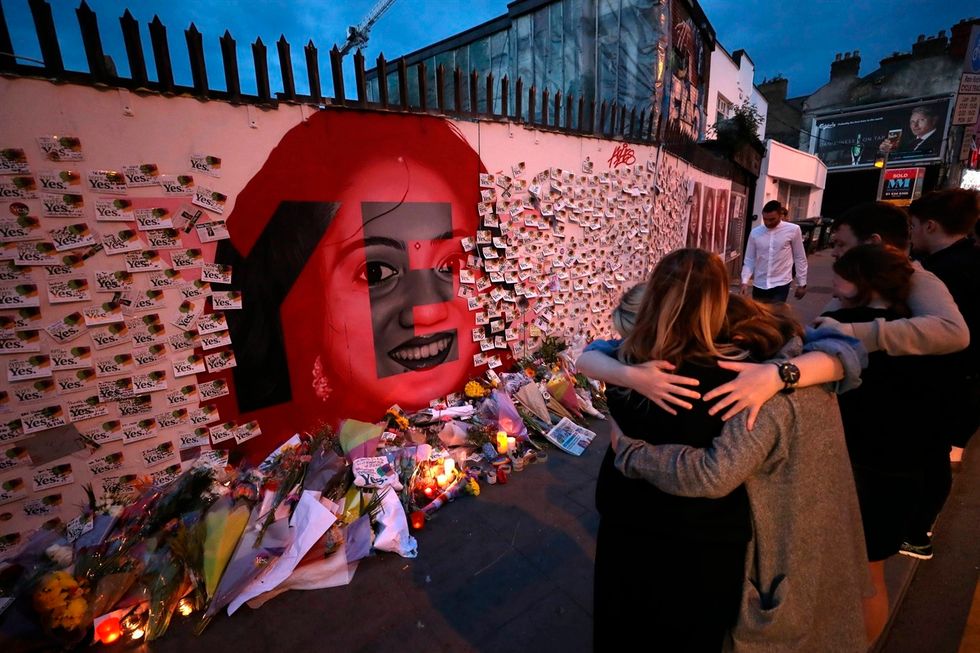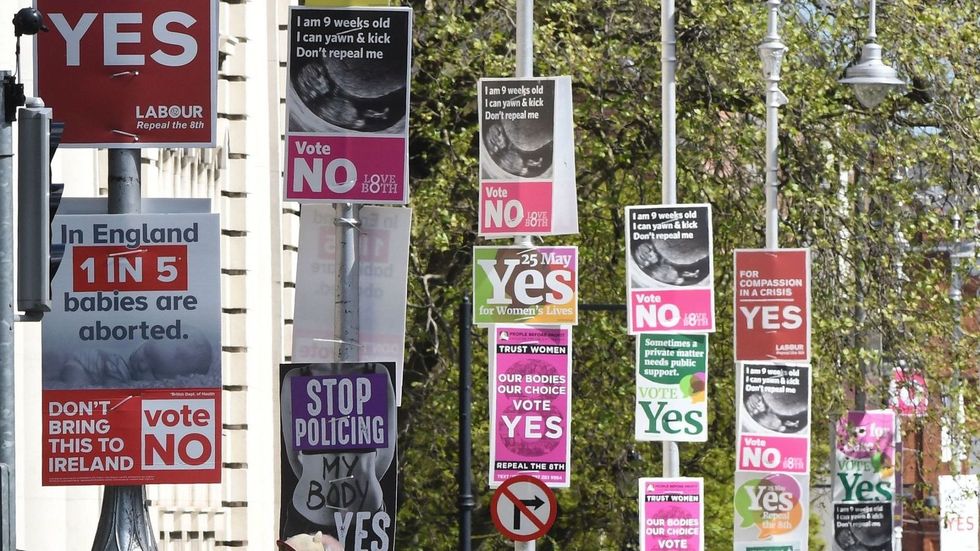On Friday, May 25th of 2018, Ireland held a referendum that would determine whether the 8th Amendment in the nation's constitution would be repealed. In a stunning landslide victory for repeal proponents, roughly 68% voted in favor of the repeal. The results signify a decisive change in the overall social perspective of a country with a historic, long-standing catholic influence on how the reproductive rights of women are regulated.
The 8th Amendment of the Irish constitution, which was adopted in 1983, marked the life of a mother as equal to that of the unborn. The addition of this legal language to the country's constitution resulted in an effective ban on abortions in Ireland. In 2013, a provision was added that legalized abortion, but only in instances where the mother's life was in danger.
For a nation that was the first to legalize gay marriage by popular vote in 2015, few issues have caused more controversy than abortion. In 2013, a woman named Savita Halappanavar died of sepsis when she was refused a termination of her pregnancy, even though she was informed that she would have a miscarriage. Pro-abortion activists contend that women's reproductive rights are severely constrained by the 8th, which provides legal language that allows doctors to refuse to provide women abortions on a subjective basis, even if the person in question feels their life is in legitimate danger. On a broader note, many activists are proponents of unconditional access to abortion, alleging that the act of restricting women from accessing abortion takes away their right to bodily autonomy.

As a result of the implementation of the 8th Amendment, Irish women with unplanned pregnancies were legally forced to have a child that they would not be emotionally nor financially prepared to care for. Such an unexpected situation would cause would-be mothers to lack the resources that proper family planning and a real desire for a child would have allowed for childcare. Furthermore, women who endure complications in their pregnancy have limited legal choices to terminate their pregnancy. If a woman is desperate to terminate her pregnancy, she must either resort to using an unsafe method of abortion, such as taking pills to miscarry illegally, or travel to Britain by plane in order to undergo a safe procedure. This disproportionately affects the poor, who are less likely to afford such a journey for a safe abortion. Women who have undergone the perilous journey to have an abortion do it at great financial and emotional compromise while enduring public shaming and physical strain on their bodies. In other words, the 8th introduces more trauma and difficulty into women's lives by forcing them carry out a pregnancy they may not desire, which only lead to the proliferation of abortions both unsafe or abroad, and the birth of children to families who are not prepared for the commitment of having a child.
Women deserve to be in full control of their reproductive destiny. Regardless of whether they choose to engage in family planning, or choose not to have children, or even have as many children as possible, they should not be forced into having a child - a serious decision that is extremely life-altering. People with uteruses deserve to have the agency to make decisions about their bodies and their pregnancy.
Ultimately, the results of the referendum repealing the 8th is a victory for women because they assert that the Irish populace are increasingly recognizing that women deserve to fully possess two fundamental rights. Firstly, women should have the right to make their own choices about their bodies - including whether they wish to bring another child into the world - without shame, fear, nor trauma. Secondly, women should be able to access safe healthcare in their country. It is the hope of activists - and mine - that one day, the idea of an unintended pregnancy will not strike fear in women the way such a prospect does now. It is now up to the Irish parliament to decide how to implement (and likely restrict) abortion services in the country, which means it is up to the public to ensure that politicians are kept accountable and women's rights are protected.
- Ireland Abortion Referendum—History Behind the 8th Amendment ... ›
- Ireland votes to repeal the 8th amendment in historic abortion ... ›
- Ireland votes to overturn its abortion ban, 'culmination of a quiet ... ›
- What is the Eighth Amendment and should we repeal it? | JOE.ie ›
- Ireland abortion referendum: What is the eighth amendment and ... ›









































